By Christian Veyre.
On December 8th, the Digital Tech Conference in Rennes will welcome Primavera de Filippi, a specialist in Blockchain, cryptocurrencies such as Bitcoin and Ethereum, and their legal implications. For this researcher, it’s use that will change the system, rather than innovation. As disruptive as it may be! Read on for an explanation.
Creative destruction is dead. Long live creative destruction! Schumpeter himself must be turning in his grave.
But this is the unfortunate reality, as explained by Primavera De Filippi, a researcher at the CNRS and at Harvard University’s Berkman Center for Internet & Society de l’Université de Harvard: “Economics is a game that repeats itself in a cyclical fashion. Even when it is stirred up by the appearance of new technologies, like blockchain, that are designed to be disruptive or outside the box. The traditional players adapt. And Blockchain is no exception!”
Let us revisit Schumpeter’s theory for a moment. For the Austrian economist, economic growth is a “perennial gale”, and innovation is the energy that powers it. And like the natural phenomenon, during the high season, one innovation replaces another.
This inevitably produces the same economic cycles: “All disruptive innovations disturb the market. This causes a primary growth phase, which often occurs to the detriment of more traditional businesses, which the innovation gradually overtakes. This is followed by a period of wealth accumulation and speculation. Then, once the innovation has a firm foothold, the market adapts to the new situation and there is a period of stagnation. The market falls into a recession until a new disruptive innovation emerges.”
And then the cycle starts over again…
Market forces
Nevertheless, despite the disruptive innovations that have been unveiled over the last few decades, traditional players – particularly in the finance sector – have succeeded in including them in their games, without even having to change the rules. Above all, these players have the means to achieve their ambitions; in other words, they are able to adapt to technical developments and use them for their own benefit, to protect their economic interests.
So much so, that while they are unable to predict the extent and intensity of the collateral effects of a disruptive phenomenon, they can nevertheless stack the deck to retain a competitive advantage: “The innovation that some players miss always ends up coming back around. This is seen every day with the Internet and GAFA**. Very few innovations escape their notice! And we are now witnessing the same phenomenon with blockchain.”
We are thus a long way off from the initial ambitions. Blockchain was designed as a technology that would allow individuals and machines to coordinate and exchange value in a secure, decentralized manner. Entirely peer-to-peer, without requiring the involvement of trusted third parties. Often described as a kind of internet of value, blockchain technology enables the construction of alternative networks that advocate for values like autonomy, independence, emancipation or self-determination. Altogether, a kind of DIY (Do it Yourself), or rather Do It Together, as most of these networks can only function with the cooperation of thousands of people!
Today, however, blockchain is used by a growing number of traditional finance players, who end up reproducing the very system that blockchain was originally intended to disrupt.
From trust to proof
An observation that has little effect on Primavera De Filippi’s morale: “Blockchain is a tool with enormous potential… but it remains a tool. Like any tool, it depends how we use it! It won’t change anything unless we decide to change our perspective and approach.”
And for Primavera De Filippi, the future offers new opportunities: “We can use this system, which is completely decentralized and relies on no trusted authorities, to create new, more collaborative and decentralized forms of governance; ‘trustless’ systems that allow people to work together, peer-to-peer, on a large scale to create value and redistribute it in a fairer manner to those who helped create this value.”
In other words, a great opportunity to replace intermediaries such as Facebook and Uber.
But this does not rule out the use of blockchain for economic or private purposes. Nor the creation of an increasingly automated company regulated by incorruptible systems that eliminate the need for trust. And why not, in the far-off future, the creation of a company governed by financially-autonomous connected objects that employs humans to fulfil its needs. This may seem like science fiction, but the first prototypes have already been created, as Primavera shows us with the plantoids (watch the video).
Humanity is thus faced with the following dilemma: to trust in a new system that will replace the notion of trust with the notion of proof, but which has not yet proven that it can be trusted.
In 2023, Blockchain will change the future!
This is the conclusion of studies published* on the topic by the World Economic Forum. For this association of “the greatest economists and politicians in the world”, blockchain is a ‘mega-trend’ of the future. After interviewing 800 executives and experts on information technology and communications, the verdict is indisputable. Blockchain will develop in two directions: on the one hand, cryptocurrency and banking disintermediation, and on the other, public policy (healthcare, tax collection, the land registry, etc.). A ‘shift’ with such a profound effect that it may lead governments to completely overhaul the political organization of our societies. In the meantime, 73.1% of the experts interviewed believe that “by 2025, at least one government will collect its taxes using blockchain”. A fair return to priorities!
To learn more, click here.
To see Primavera De Filippi live, click here, or here for Tedx Cambridge
Suggested reading or rereading on the topic (in French): Nous les Césars du monde, a gonzo journalism-style report by Hannes Grasseger, in XXI magazine’s Fall 2016 issue (no. 36). A report on the “final banquet of the Blockchain Summit” held on Necker Island, the private island owned by the businessman and entrepreneur Richard Branson, which brought together “the world’s greatest minds in the field of digital innovation” to “define the future” and, of course, to discuss Blockchain and Bitcoin.
* in Global Agenda Council on the Future of Software and Society.
** The Internet giants (Google, Apple, Facebook Amazon, Microsoft.)
Originally published in Ouest-France “Blockchain change-t-elle les règles du jeu ?“

